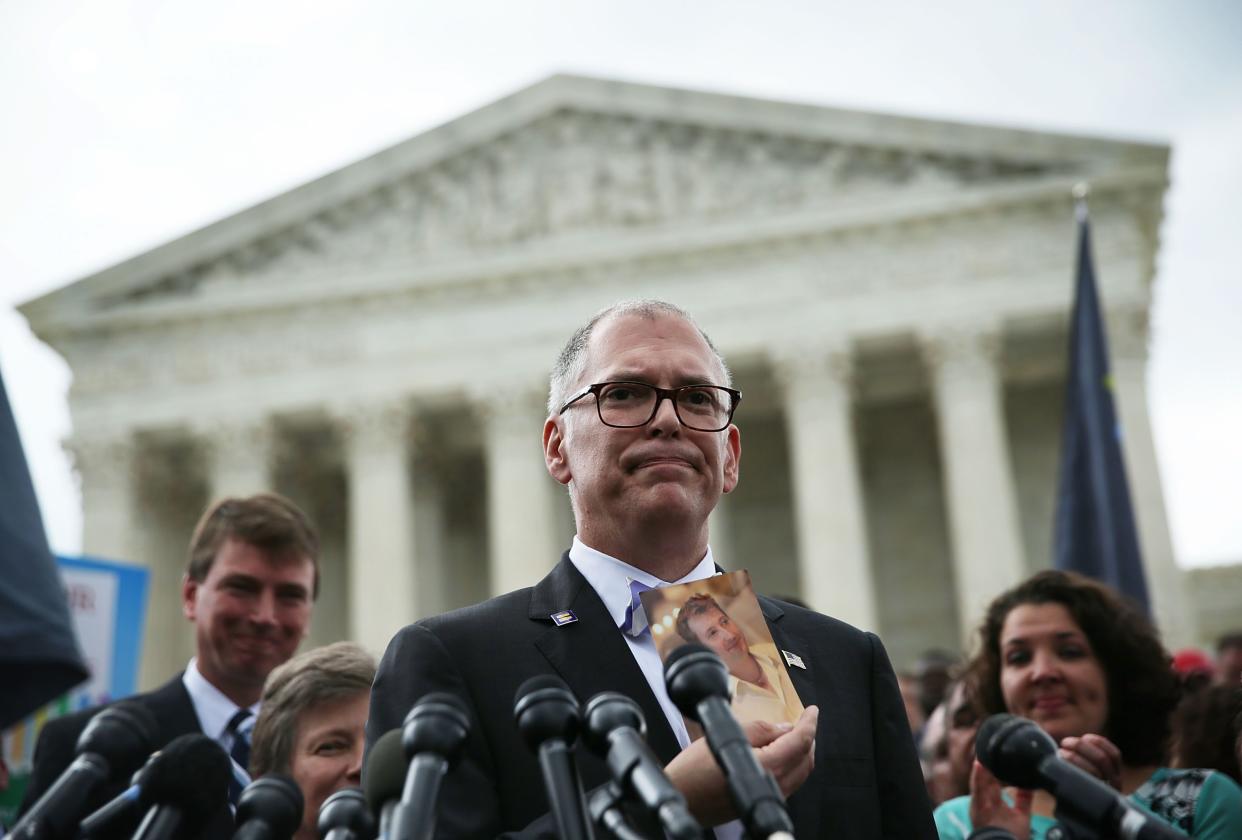Obergefell: Supreme Court, lawmakers have more to do to prevent anti-LGBTQ discrimination

I’ll never forget what it felt like to sit inside the U.S. Supreme Court more than four years ago, anxiously awaiting a ruling in the case that ultimately brought same-sex couples the freedom to marry nationwide.
I was the named plaintiff in the case, and I felt a tremendous burden leave my shoulders as the world learned that justice had prevailed for same-sex couples and for the supermajority of Americans who supported the freedom to marry.
Now I’m feeling a similar sense of anxiety awaiting a different ruling from the Supreme Court. Just over a month ago, the justices heard arguments in three cases brought by LGBTQ+ people who were fired from their jobs because of who they are or whom they love.
Discrimination is still a threat
Over the years, I have heard from many same-sex couples who have been able to marry — or whose marriages are now recognized — because of the marriage equality victory. But in many of those conversations, I’ve also heard fears about the lack of explicit nondiscrimination protections in their home states. I’ve heard from gay people whose job offers were rescinded after they mentioned their spouse in negotiations, transgender people fired after their gender transition and bisexual people who endured colleagues’ anti-LGBTQ harassment with no intervention from their employer.
Religious liberty can't be ignored: Kentucky photographer: I shouldn't be forced to work same-sex weddings
A win in the employment discrimination cases at the Supreme Court would assuage many of those fears, protect people from harm and put the nation’s highest court on the right side of history by upholding a view that nearly 70% of Americans hold: LGBTQ+ people should be legally protected from discrimination.
But even with a landmark victory in these employment cases, our work won’t be over. Regardless of the outcome of these cases, we’ll need to pass clear and comprehensive protections for LGBTQ+ people in every area of life, including housing, health facilities and public spaces.
The truth is that everyone should be treated with dignity and respect regardless of who they are — and that means ensuring no one faces unfair treatment because of their LGBTQ+ identity.
Lawmakers have another chance
I recently moved back to my home state of Ohio after spending a few years in Washington, D.C. Ohio is where I was raised, where I fell in love and where I lost my beloved husband John — the loss that propelled me to activism and advocacy in the first place.

Ohio is one of a majority of states where LGBTQ+ people lack vital comprehensive nondiscrimination protections. It pains me year after year to see our state Legislature fail to pass legislation prohibiting anti-LGBTQ discrimination. But this year, lawmakers have another chance: In September, a nondiscrimination bill was proposed with bipartisan support.
The fight for equal rights goes on: My mom's victory against sex discrimination expanded Title VII protections to LGBTQ people
There are many opportunities to give LGBTQ+ people full dignity and equality — and it’s up to all of us to push forward every day. That means encouraging the Supreme Court to do the right thing, but it also means organizing in our communities, educating our lawmakers about our lives and our experiences and sharing our stories until all of us are able to thrive.
Momentum is building, and together we can ensure that everyone is protected from discrimination, no matter where they live. We look forward to a future where we are all truly part of "We the people."
Jim Obergefell, the named plaintiff in the landmark civil rights decision Obergefell v. Hodges, is an author, speaker and founder of Equality Vines. This column originally appeared in the Cincinnati Enquirer.
You can read diverse opinions from our Board of Contributors and other writers on the Opinion front page, on Twitter @usatodayopinion and in our daily Opinion newsletter. To respond to a column, submit a comment to letters@usatoday.com.
This article originally appeared on Cincinnati Enquirer: Obergefell: Supreme Court, lawmakers still need to protect LGBT people

